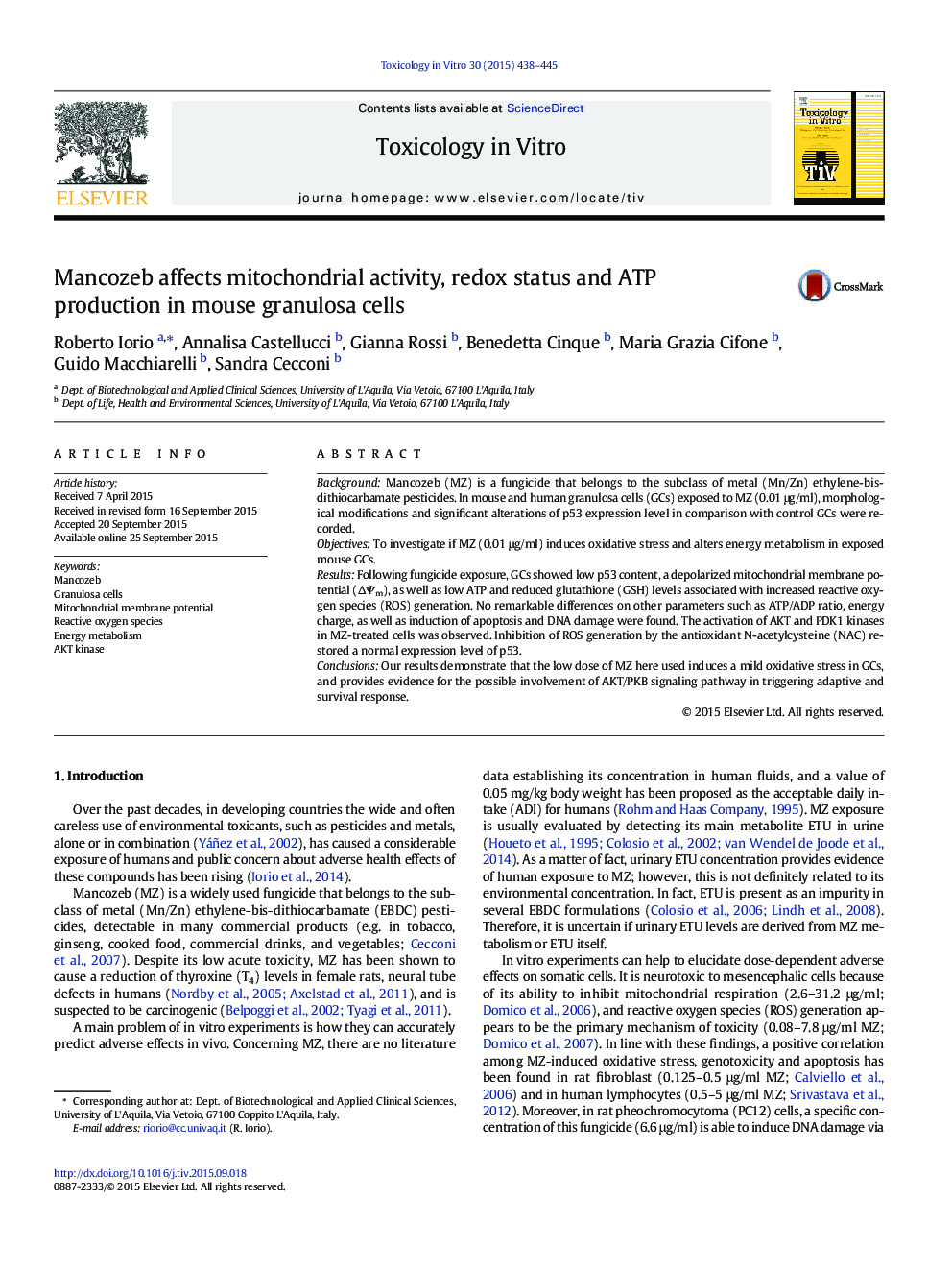| Article ID | Journal | Published Year | Pages | File Type |
|---|---|---|---|---|
| 2602427 | Toxicology in Vitro | 2015 | 8 Pages |
•Mancozeb toxicity was in vitro assessed in mouse granulosa cells.•Increased oxidative stress was reported.•Decreased mitochondrial activity and reduced ATP levels were detected.•The potential contributions of AKT in mediating adaptive responses were reported.
BackgroundMancozeb (MZ) is a fungicide that belongs to the subclass of metal (Mn/Zn) ethylene-bis-dithiocarbamate pesticides. In mouse and human granulosa cells (GCs) exposed to MZ (0.01 μg/ml), morphological modifications and significant alterations of p53 expression level in comparison with control GCs were recorded.ObjectivesTo investigate if MZ (0.01 μg/ml) induces oxidative stress and alters energy metabolism in exposed mouse GCs.ResultsFollowing fungicide exposure, GCs showed low p53 content, a depolarized mitochondrial membrane potential (ΔΨm), as well as low ATP and reduced glutathione (GSH) levels associated with increased reactive oxygen species (ROS) generation. No remarkable differences on other parameters such as ATP/ADP ratio, energy charge, as well as induction of apoptosis and DNA damage were found. The activation of AKT and PDK1 kinases in MZ-treated cells was observed. Inhibition of ROS generation by the antioxidant N-acetylcysteine (NAC) restored a normal expression level of p53.ConclusionsOur results demonstrate that the low dose of MZ here used induces a mild oxidative stress in GCs, and provides evidence for the possible involvement of AKT/PKB signaling pathway in triggering adaptive and survival response.
